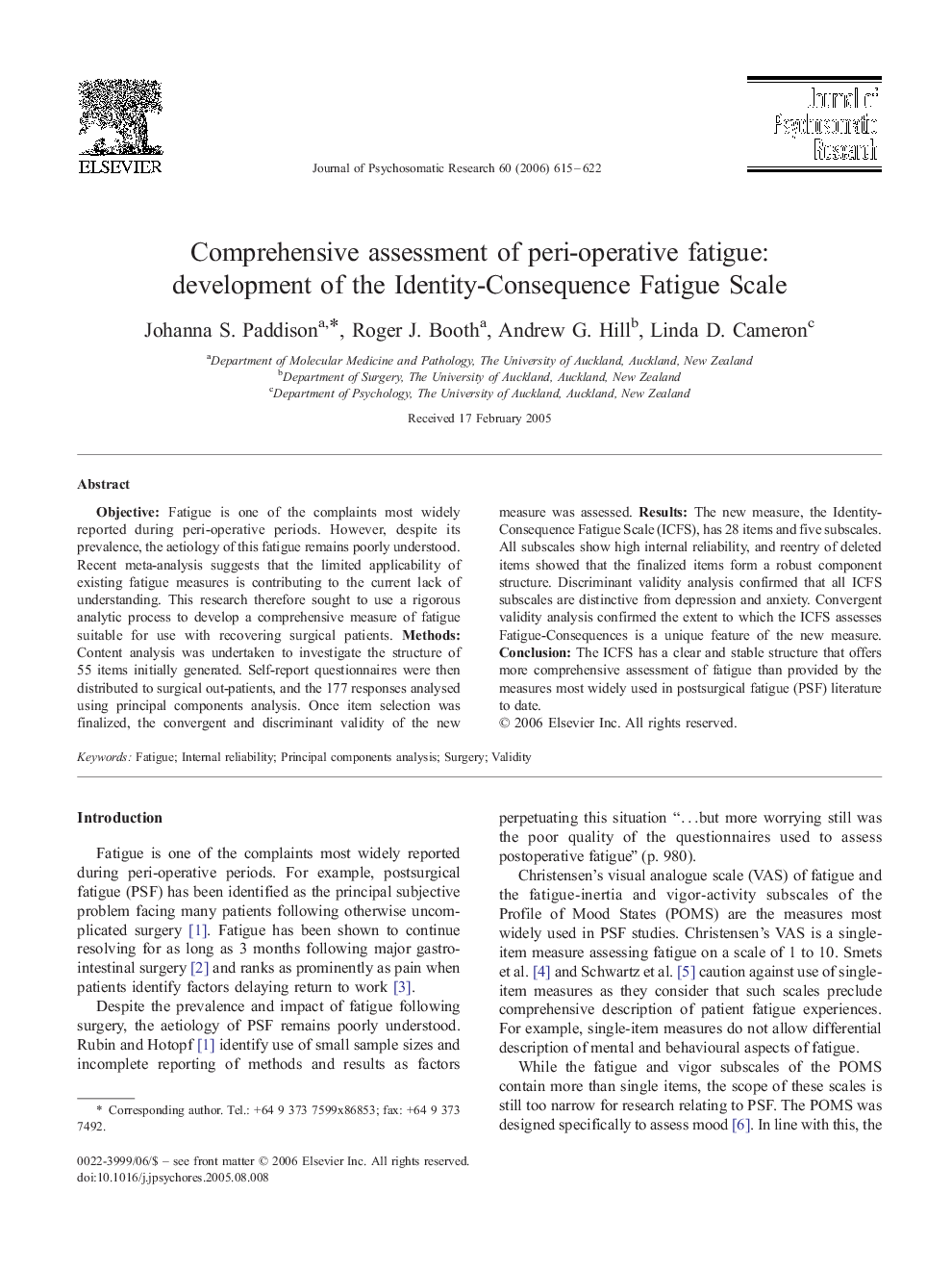| Article ID | Journal | Published Year | Pages | File Type |
|---|---|---|---|---|
| 950833 | Journal of Psychosomatic Research | 2006 | 8 Pages |
ObjectiveFatigue is one of the complaints most widely reported during peri-operative periods. However, despite its prevalence, the aetiology of this fatigue remains poorly understood. Recent meta-analysis suggests that the limited applicability of existing fatigue measures is contributing to the current lack of understanding. This research therefore sought to use a rigorous analytic process to develop a comprehensive measure of fatigue suitable for use with recovering surgical patients.MethodsContent analysis was undertaken to investigate the structure of 55 items initially generated. Self-report questionnaires were then distributed to surgical out-patients, and the 177 responses analysed using principal components analysis. Once item selection was finalized, the convergent and discriminant validity of the new measure was assessed.ResultsThe new measure, the Identity-Consequence Fatigue Scale (ICFS), has 28 items and five subscales. All subscales show high internal reliability, and reentry of deleted items showed that the finalized items form a robust component structure. Discriminant validity analysis confirmed that all ICFS subscales are distinctive from depression and anxiety. Convergent validity analysis confirmed the extent to which the ICFS assesses Fatigue-Consequences is a unique feature of the new measure.ConclusionThe ICFS has a clear and stable structure that offers more comprehensive assessment of fatigue than provided by the measures most widely used in postsurgical fatigue (PSF) literature to date.
